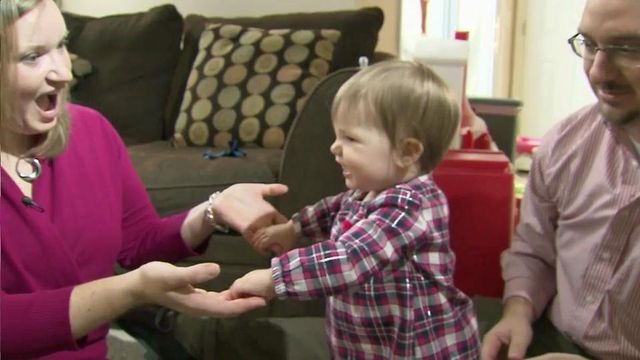UNC inpatient program serves as a model in treating postpartum depression
UNC Hospitals is home to one of the few inpatient treatment centers for postpartum mood disorders in the country, but with only a few beds and an average stay of 10 days, it's hard for women who suffer to get a slot.
Posted — UpdatedFor mothers who find the joy of childbirth clouded by postpartum depression, hospitalization can ease the stresses of new parenthood and protect their children from danger.
UNC Hospitals is home to one of the few inpatient treatment centers for postpartum mood disorders in the country, but with only a few beds and an average stay of 10 days, it's hard for women who suffer to get a slot.
Postpartum symptoms can range from the "baby blues" to a psychotic break, and in severe cases, mentally ill mothers have hurt their children.
Kristina Dulaney ended up finding treatment at Moses H. Cone Memorial Hospital in Greensboro. She spent two weeks in the hospital followed by intensive outpatient therapy and medication.
A very small percentage of those become psychotic, and some will go on to harm their child. Meltzer-Brody referenced the 2001 case of Andrea Yates, a Texas mother who drowned her five children in a bathtub.
Dulaney said she didn't want other moms to think she couldn't handle motherhood, but for doctors like Kimmel and Meltzer-Brody, encouraging women to seek help is key.
• Credits
Copyright 2024 by Capitol Broadcasting Company. All rights reserved. This material may not be published, broadcast, rewritten or redistributed.





